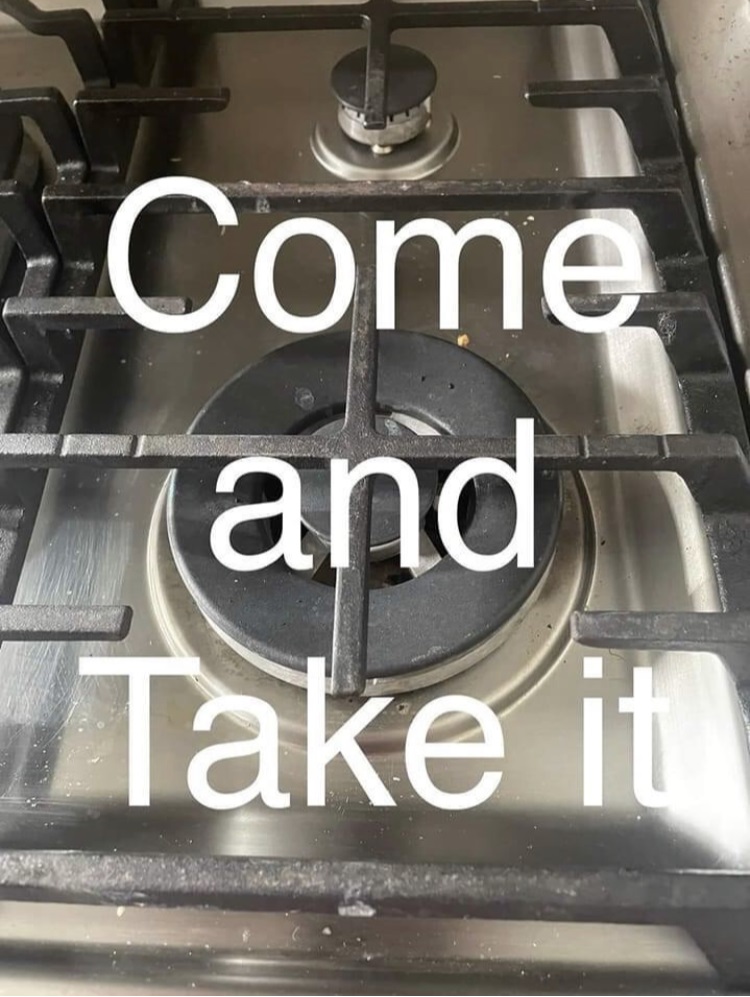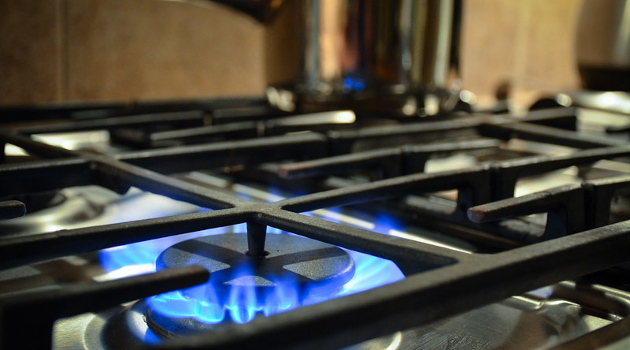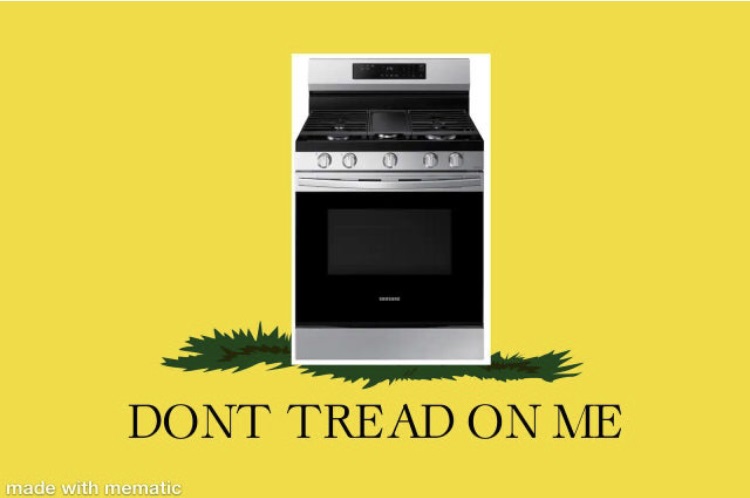The nanny-state crowd in DC generates red tape with big macroeconomic costs. But also quality-of-life costs.
- Inferior light bulbs
- Substandard toilets
- Inadequate washing machines
- Dribbling showers
- Dysfunctional gas cans
- Crummy dishwashers
And it seems they never rest. After making one part of our life less convenient, they search for a new target.
Next on their list is an attack on gas stoves.
This is not because these appliances are exploding.
It’s not because they lead to fire hazards.
And it’s not because they leak gas and cause preventable deaths.
Instead, the bureaucrats imagine we might possibly be at risk of something, somehow.
I’m not joking. Here are some excerpts from a Wall Street Journal editorial about the latest assault on appliance freedom.
Coercion in the cause of banning fossil fuels is no vice for the Biden Administration… The Consumer Product Safety Commission (CPSC) could soon ban gas stoves. CPSC Commissioner Richard Trumka Jr. teased in an interview…that the agency plans to propose new regulations for gas stoves, which could include a ban. …Mr. Trumka isn’t worried that gas stoves might cause accidental burns—a hidden hazard for electric range-tops that stay hot long after they’re turned off. Instead, the agency’s purported concern is that gas stoves cause indoor air pollution and asthma, though there’s scant evidence to support such claims. …The real hazard isn’t gas stoves but how people use them. Not that this distinction matters to the CPSC, which has a long history of targeting products…because of accidents that are the fault of customers. In this case, Mr. Trumka wants to use indoor pollution as a pretext to advance the climate left’s goal of forcing all buildings to use electricity for everything.
In a column for National Review, Charles Cooke has a withering assessment of this hare-brained initiative.
One could advance any number of compelling arguments against the Biden administration’s reported desire to institute a nationwide ban on gas stoves. …yet to offer any of these objections would ultimately be counterproductive, insofar as it would signal an acceptance of the premise underlying the policy, which is that this is the sort of matter that a free people should expect their federal government to superintend. …That’s right. The correct response here is a rather simple one, all told: Go away. Leave us alone. Stick your ludicrous propositions where the sun don’t shine. …That is a private matter — a matter in which the powers that be ought to have no say. …most of the “science” that’s being sold by the Anti-Stove Brigade seems extremely thin to me, but, even if it weren’t, I still wouldn’t give a toss about it, because I’m an adult, and I’m aware that life is full of trade-offs. …Justifying the administration’s proposed move, CPSC commissioner Richard Trumka Jr. explained that “products that can’t be made safe can be banned.” What, I wonder, would be excluded from that definition?
Amen, especially to the point about letting adults take risks.
- Drinking can be risky, but that doesn’t mean we should have prohibition.
- Doing drugs can be risky, but that’s not an argument for the War on Drugs.
- Smoking can be risky, but that’s hardly a reason to impose a cigarette ban.
- Vaping can be risky, but it’s very misguided to restrict the freedom to vape.
- Consuming sugar can be risky, but politicians should not ban Big Gulps.
And there are lots of other activities that have produce risks of death and injury, such as scuba diving, hang gliding, skateboarding, etc.
In a free society, none of these things should be controlled by government bureaucrats.

P.S. Let’s not forget how some subnational governments are going after plastic straws.
———
Image credit: Oregon State University | CC BY-SA 2.0.




